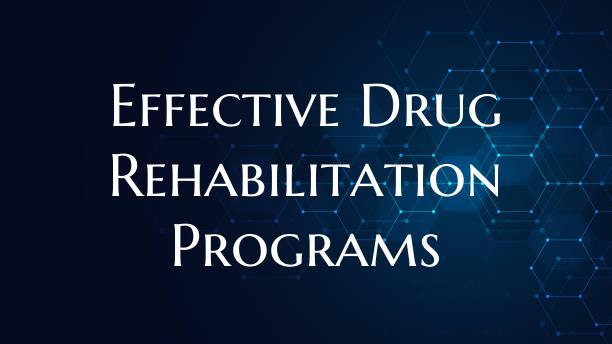
Effective Drug Rehabilitation Programs
Effective Drug Rehabilitation Programs
Drug addiction is a complex issue that affects individuals, families, and communities worldwide. In response to this growing problem, effective drug rehabilitation programs have emerged as critical tools in helping individuals overcome substance abuse and achieve long-term recovery. These programs are designed to address not only the physical dependency on drugs but also the underlying psychological, social, and emotional factors that contribute to addiction.
Key elements of effective drug rehabilitation programs include:
1. Comprehensive Assessment: A thorough assessment of each individual's needs and circumstances is conducted to tailor a personalized treatment plan. This may include medical, psychological, and social assessments to identify co-occurring disorders or underlying trauma that may be contributing to the addiction.
2. Evidence-Based Treatment: Effective drug rehabilitation programs utilize evidence-based practices that have been proven to be successful in treating substance abuse. These may include cognitive-behavioral therapy, motivational interviewing, medications for addiction treatment, and holistic approaches such as mindfulness and yoga.
3. Multidisciplinary Approach: A team of professionals, including doctors, therapists, counselors, and social workers, work together to provide a comprehensive treatment plan that addresses the physical, emotional, and social aspects of addiction. This multidisciplinary approach ensures that individuals receive the support they need to address all aspects of their addiction.
4. Continuous Support: Recovery from drug addiction is a lifelong process, and effective drug rehabilitation programs provide ongoing support to individuals even after they complete inpatient or outpatient treatment. This may include aftercare programs, support groups, relapse prevention strategies, and access to community resources.
5. Client-Centered Care: Effective drug rehabilitation programs prioritize the needs and preferences of the individual in treatment, recognizing that each person's journey to recovery is unique. Clients are empowered to take an active role in their treatment, set goals for themselves, and participate in decisions regarding their care.
6. Family Involvement: The involvement of family members and loved ones in the treatment process can be instrumental in supporting long-term recovery. Effective drug rehabilitation programs offer family therapy, education, and support services to help families understand addiction, communicate effectively, and rebuild relationships.
By incorporating these key elements, effective drug rehabilitation programs can help individuals break free from the cycle of addiction, learn healthy coping mechanisms, and rebuild their lives. Through a combination of evidence-based treatment, personalized care, and ongoing support, individuals can achieve lasting recovery and regain control of their health and well-being.